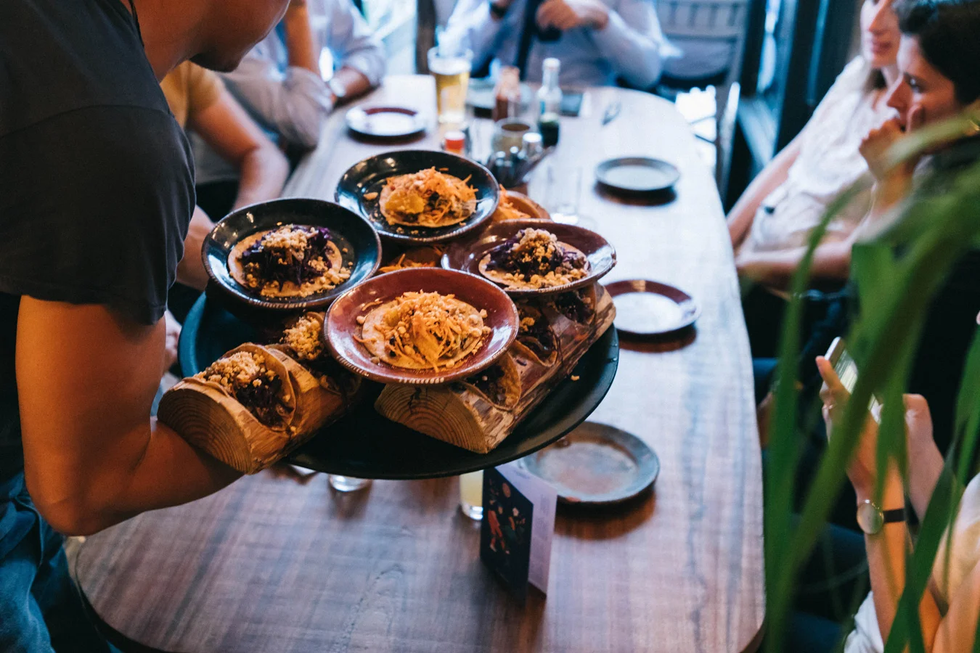How to make student jobs look good on your résumé
Aug 09, 2022 - updated Aug 02, 2022
4 mins

MA
Retail, restaurants, fruit picking, babysitting, summer camps, tutoring … You may work in more fields and sectors when you’re a student than in the rest of your professional career. These work experiences during your studies, often on short-term contracts, aren’t necessarily related to the professional path you hope to follow but they still reflect a part of your personality and your skills. It’s estimated that nearly half of all students have a part-time job. However, when it comes to your résumé, many questions arise: should you mention work experience that doesn’t match the internship or full-time job you’re applying for? How can you turn these “other experiences” into assets on your application? Here are our tips.
Don’t discount student jobs
Student jobs are the first immersion into the jungle of work. You learn very early on how to deal with hierarchy, punctuality, courtesy, reactivity, invoicing, the value of work, contracts, and so on. These jobs allow you to discover and learn the codes specific to the world of work. The same codes will follow you throughout your working life and they will be the first skills on your résumé. According to Jacob Leos-Urbel, who co-led research into summer jobs at the University of Stanford, this type of work “encourages the development of noncognitive skills such as good time management, perseverance, and self-confidence”.
Here’s a non-exhaustive list of skills that can be developed through student jobs:
Adaptability: For example, to a new environment, a new team, an unknown product, or a sector of activity.
Reactivity: Due to the nature of these jobs, which are often short-term, you must get up to speed very quickly.
Autonomy: Even if you often have a manager, you’re still expected to be efficient and proactive.
Open-mindedness: You’re ready to discover new ways of doing things, new sectors, and so on. Your future colleagues may never have had the same kind of experience!
Multitasking: This comes from dealing with a wide variety of situations.
Stress management: Learnt, perhaps, from dealing with the lunch-time rush in a restaurant or a sudden rush of customers into a shop.
Taking on responsibility: By being in charge of the safety of the set-up of an event, for example, or a group of children on an extracurricular excursion.
In the eyes of recruiters, working during your studies shows that you are motivated and hard-working. This is certainly what Quentin Debavelaere, operations director at Malt and head of recruitment, believes. “It’s true that applicants who have already had a small job are generally more resourceful, which—at least in start-ups—is always interesting. It shows someone who takes control of their life. If there’s a certain consistency or if it’s done with conviction, that’s even better,” he said.
Having several different work experiences is the best way to expand your horizons and develop the adaptability that’s essential for entering the workforce. Then, if a recruitment process is down to two candidates with similar profiles, the recruiter may look at those additional experiences as the final selection criteria.
5 tips to highlight student jobs on your résumé and in interviews
1. Pick and choose
For your résumé, keep only the jobs that allowed you to acquire the skills requested in the job description. It’s what you got out of these odd jobs that will give them real added value. For example, a job as a waiter will have taught you customer service, stress management, and prioritizing tasks, all skills that you can put to good use in other sectors, such as sales. As a simple exercise, make a table with two columns. On the left, put down your student jobs with all the skills you’ve learned from each one. On the right, put down the required skills listed in the job description. Next, match the two columns to find out which jobs you should keep on your résumé.
2. Show tangible results
If your odd jobs have helped you achieve clear goals, make the most of them. If your actions and business acumen may have increased a company’s sales, show it. Another example may be tutoring a younger pupil. Show what the pupil achieved as a result, such as obtaining a diploma or getting higher marks. These results are the best proof of your success, so try to play them up as much as you can.
3. Never downplay an experience
If you’ve chosen to talk about a student job and put it on your résumé, it means it has something to bring to your application. Given your age and student status, it’s normal that you can’t cite more substantive experience, so you have no reason to feel embarrassed. Don’t be too modest and don’t downplay your experience. Avoid using negative terms to describe your experience, either on your résumé or in a job interview. If you’ve worked in the family business, don’t trivialize your role. It’s an experience just like any other; ultimately you could have done nothing at all.
4. Focus on jobs that required specific training
First-aid training, a diploma in youth work … if one of your jobs required training, be sure to mention it. Training is an investment that requires sacrifice and attests to your motivation—it’s something that doesn’t garner an instant reward. Training for a summer job during the winter break, for example, shows the true dedication that not everyone can claim.
5. Prioritize your longest-held student jobs
The “Other Experience” section of your résumé is bound to shrink as you finish up your internships or apprentices. Also, when you have worked several student jobs, you will have to shorten this section by keeping only the most significant ones. Focus on your longest-held jobs, which will make your résumé weightier, and let the recruiter know that you had enough time to fully apply the skills you acquired.
You now have everything you need to make the most of your student jobs in your applications. If you’re going to do further work while studying, try to gravitate toward a job where you can learn a specific skill that could be useful for a future internship or job application. You’ll be all the more motivated when you realize that this experience can enhance your résumé.
Translated by Kalin Linsberg
Photo: Welcome to the Jungle
Follow Welcome to the Jungle on Facebook, LinkedIn, and Instagram, and subscribe to our newsletter to get our latest articles every day!

More inspiration: Perfect your resume

Recruiter confessions: 6 resume red flags
Having trouble getting your resume past the screening phase? You might be making these mistakes ...
Dec 10, 2024

Resume hacks: 10 tips for cherry-picking skills to land the job
Struggling to craft a standout resume? Here’s how to cherry-pick the right skills to catch recruiters' attention.
Nov 25, 2024

The most common resume mistakes and how to avoid them
A simple resume can often make or break your application. So, what common mistakes should you avoid when crafting your CV?
May 02, 2024

Will mentioning dyslexia on your resume hold you back in your job search?
Experts weigh in on whether or not it helps or hinders job hunters ...
Dec 05, 2023

Resume buzzwords: How to maximize impact without losing authenticity
If you want your resume to stand out, using the right words is key …
Nov 20, 2023
The newsletter that does the job
Want to keep up with the latest articles? Twice a week you can receive stories, jobs, and tips in your inbox.

Looking for your next job?
Over 200,000 people have found a job with Welcome to the Jungle.
Explore jobs